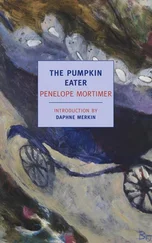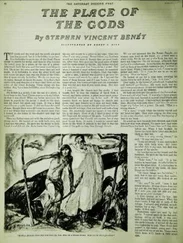Ouida - The Waters of Edera
Здесь есть возможность читать онлайн «Ouida - The Waters of Edera» — ознакомительный отрывок электронной книги совершенно бесплатно, а после прочтения отрывка купить полную версию. В некоторых случаях можно слушать аудио, скачать через торрент в формате fb2 и присутствует краткое содержание. Жанр: foreign_prose, literature_19, foreign_antique, на английском языке. Описание произведения, (предисловие) а так же отзывы посетителей доступны на портале библиотеки ЛибКат.
- Название:The Waters of Edera
- Автор:
- Жанр:
- Год:неизвестен
- ISBN:нет данных
- Рейтинг книги:3 / 5. Голосов: 1
-
Избранное:Добавить в избранное
- Отзывы:
-
Ваша оценка:
- 60
- 1
- 2
- 3
- 4
- 5
The Waters of Edera: краткое содержание, описание и аннотация
Предлагаем к чтению аннотацию, описание, краткое содержание или предисловие (зависит от того, что написал сам автор книги «The Waters of Edera»). Если вы не нашли необходимую информацию о книге — напишите в комментариях, мы постараемся отыскать её.
The Waters of Edera — читать онлайн ознакомительный отрывок
Ниже представлен текст книги, разбитый по страницам. Система сохранения места последней прочитанной страницы, позволяет с удобством читать онлайн бесплатно книгу «The Waters of Edera», без необходимости каждый раз заново искать на чём Вы остановились. Поставьте закладку, и сможете в любой момент перейти на страницу, на которой закончили чтение.
Интервал:
Закладка:
To Gianna, who questioned him, he said, "Yes, he was a good soul. Often have I seen him down in the Roman plains. He worked himself to death. These gangs of labourers get poor pay. I saw him also in the hills where this girl comes from, ever so high up, you seem to touch the sky. I summered there two years ago; he had his womankind in a cabin, and he took all that he got home to them. Aye, he was a good soul. We can come away out of the heats, but they have to stay down in them; for the reaping and the sowing are their chief gain, and they get the fever into their blood, and the worms into their bellies, and it kills them mostly before they are forty. You see, at Ansalda, where he came from, it was snow eight months out of the twelve, so the heats and the mists killed him: for the air you are born in you want, and if you do not get it in time you sicken."
"Like enough," said Gianna, who herself had never been out of sight of the river Edera ever since she had been a babe in swaddling clothes. "Tell me, gossip, was the child born in wedlock?"
"Eh, eh!" said the goatherd grinning. "That I would not take on me to say. But like enough, like enough; they are always ready to go before the priest in those high hills."
The little girl glided into her place humbly and naturally, with no servility but with untiring willingness and thankfulness. It seemed to her an amazing favour of heaven to live with these good people; to have a roof over her head and food regularly every day. Up there in her home, amongst the crags of Ansalda, she had never known what it was not to have a daily hunger gnawing always in her entrails, and making her writhe at night on her bed of dry leaves. In her thirteen years of life she had never once had enough—no one ever had. A full stomach had been a thing unknown.
She began to grow, she began to put a little flesh on her bones; they had cut her hair short, for it had been so rough, and it grew again burnished and bright like copper; colour came into her cheeks and lips; she seemed to spring upward, visibly, like a young cane. She worked hard, but she worked willingly, and she was well nourished on sound food, though it had little variety and was entirely vegetable; and every day she went down and bathed in the river at the same place where she had sat nude under the dock leaves whilst her skirt dried in the sun.
To her the Terra Vergine was Paradise itself; to be fed, to be clothed, to have a mattress to sleep on, to work amongst the flowers and the grass and the animals—it was all so beautiful, she thought sometimes that she must be in heaven.
She spoke little. Since she had been under this roof she had grown ashamed of the squalor and starvation and wretchedness of her past existence. She did not like to think of it even; it had been no fault of hers, but she felt ashamed that she ever should have been that little, filthy, unkempt, naked thing, grovelling on the clay floor, and fighting for mouldy crusts with the other children on the rock of Ansalda.
"If I had only known when father was alive," she thought; but even if she had known all she knew now, what could she have done? There had been nothing to use, nothing to eat, nothing to wear, and the rain and the snow and the wind had come in on them where they had lain huddled together on their bed of rotten leaves. Now and then she said something of that rude childhood of hers to Adone; she was afraid of the women, but not of him; she trotted after him as the little white curly dog Signorino trotted after Don Silverio.
"Do not think of those dark days, little one," he said to her. "They are gone by. Think of your parents and pray for their souls; but let the rest go; you have all your life to live."
"My mother was young when she died," said the child. "If she had had food she would not have died. She said so. She kept on gnawing a bit of rag which was soaked in water; you cheat hunger that way, you know, but it does not fill you."
"Pour soul! Poor soul!" said Adone, and he thought of the great markets he had seen in the north, the droves of oxen, the piles of fruits, the long lines of wine carts, the heaps of slaughtered game, the countless shops with their electric light, the trains running one after another all the nights and every night to feed the rich; and he thought, as he had thought when a boy, that the devil had troppo braccio , if any devil indeed there were beside man himself.
Should there be anywhere on the face of the earth, young women, good women, mothers of babes who died of sheer hunger like this mother of Nerina's up yonder in the snows of the Abruzzo? He thought not; his heart revolted at the vision of her, a living skeleton on her heap of leaves.
"Father brought all he had," continued the child, "but he could not come back until after harvest, and when he came back she had been in the ground two months and more. They put him in the same ditch when his turn came; but she was no longer there, for they take up the bones every three years and burn them. They say they must, else the ditch would get too full."
Adone shuddered. He knew that tens of thousands died so, and had died so ever since the days of Phenicians and Gauls and Goths. But it revolted him. The few gorged, the many famished—strange disproportion! unkind and unfair balance!
But what remedy was there?
Adone had read some socialistic and communistic literature; but it had not satisfied him; it had seemed to him vain, verbose, alluring, but unreal, no better adapted to cure any real hunger than the soaked rag of Nerina's mother.
III
The Valdedera is situated on the south of the Marches, on the confines of what is now the territorial division of the Abruzzo-Molese, and so lies between the Apennines and the Adriatic, fanned by cool winds in summer from the eternal snow of the mountain peaks, and invigorated in all seasons by breezes from the Adrian Sea.
Ruscino, placed midway in the valley, is only a village to which no traveller has for many years come, and of which no geographer ever speaks; it is marked on the maps of military topographers, and is, of course, inscribed on the fiscal rolls, but is now no more than a village; though once, when the world was young, it was the Etruscan Rusciae, and then the Latin Ruscinonis; and then, when the Papacy was mighty, it was the militant principality of the fortified town of Ruscino. But it was, when the parish of Don Silverio, an almost uninhabited village; a pale, diminutive, shrunken relic of its heroic self; and of it scarcely any man knows anything except the few men who make their dwelling there; sons of the soil, who spring from its marble dust and return to it.
It had shrunk to a mere hamlet as far as its population was counted; it shrank more and more with every census. There was but a handful of poor people who, when gathered together in the great church, looked no more than a few flies on a slab of marble.
The oldest men and women of the place could recall the time when it had been still of some importance as a posting place on the mountain route between the markets of the coast and the western towns, when its highway had been kept clean and clear through the woods for public and private conveyance, and when the clatter of horses' hoofs and merry notes of horns had roused the echoes of its stones. In that first half of the century, too, they had lived fairly well, and wine and fowls had cost next to nothing, and home-made loaves had been always large enough to give a beggar or a stray dog a slice. But these times had long been over; every one was hungry now, and every one a beggar, by way of change, and to make things equal, as the people said, with dreary mirth and helpless acquiescence in their lot. Like most riverain people, they lived chiefly by the river, cutting and selling its canes, its sallows, its osiers, its sedges, catching its fish, digging its sand; but there were few buyers in this depopulated district.
Читать дальшеИнтервал:
Закладка:
Похожие книги на «The Waters of Edera»
Представляем Вашему вниманию похожие книги на «The Waters of Edera» списком для выбора. Мы отобрали схожую по названию и смыслу литературу в надежде предоставить читателям больше вариантов отыскать новые, интересные, ещё непрочитанные произведения.
Обсуждение, отзывы о книге «The Waters of Edera» и просто собственные мнения читателей. Оставьте ваши комментарии, напишите, что Вы думаете о произведении, его смысле или главных героях. Укажите что конкретно понравилось, а что нет, и почему Вы так считаете.












